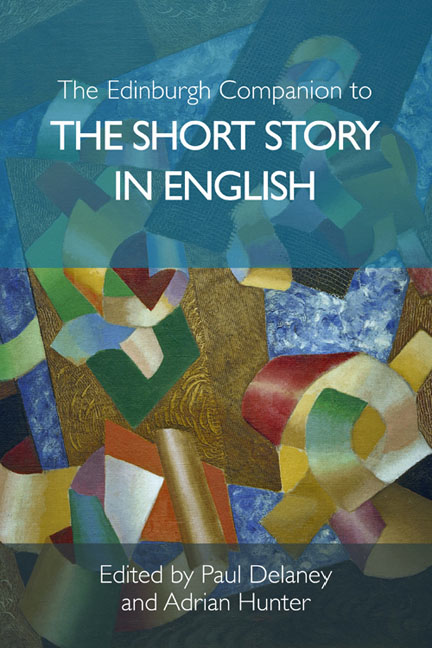Book contents
- Frontmatter
- Contents
- Acknowledgements
- Notes on Contributors
- Introduction
- Part I Historicising the Short Story
- Part II Publishing the Short Story
- Part III Forms of the Short Story
- Part IV Placing the Short Story
- 14 Regionalism and the Short Story
- 15 The Short Story and the City
- 16 The Short Story in Suburbia
- 17 The Short Story and the Environment
- Part V Identity and the Short Story
- Index of Short Story Titles
- General Index
14 - Regionalism and the Short Story
from Part IV - Placing the Short Story
Published online by Cambridge University Press: 18 December 2019
- Frontmatter
- Contents
- Acknowledgements
- Notes on Contributors
- Introduction
- Part I Historicising the Short Story
- Part II Publishing the Short Story
- Part III Forms of the Short Story
- Part IV Placing the Short Story
- 14 Regionalism and the Short Story
- 15 The Short Story and the City
- 16 The Short Story in Suburbia
- 17 The Short Story and the Environment
- Part V Identity and the Short Story
- Index of Short Story Titles
- General Index
Summary
‘THE HURRICANE DOES NOT roar in pentameters’, Kamau Brathwaite remarked in History of the Voice (1984). ‘And that's the problem: how do you get a rhythm which approximates the natural experience, the environmental experience?’ Brathwaite's comments stress the need for a form of poetry which is appropriate to the social, cultural and natural environment of the Caribbean. However, the questions he raises are equally pertinent to anglophone Caribbean short fiction. The iambic pentameter, in Brathwaite's estimation, ‘carries with it a certain kind of experience’ from outside the region; something similar can be said for the formal conventions of the modern European and American short story. Building on Brathwaite's claims, and with a focus on anglophone Caribbean short stories, this chapter asserts the value of reading literary forms – and particularly the form of the short story – in regional terms.
Short story theory has not, as yet, sufficiently engaged with the variety of cultural traditions which constitute the genre, although recent research has begun to broaden the range of reference. In formalist studies of the 1960s and 1970s, some of the characteristics of European and American short stories were regarded as distinguishing features of the form more broadly and were therefore presented as universally applicable. Subsequent criticism has moved away from such taxonomies, and from attempts to define the ‘short story proper’, and has instead positioned short stories within the contexts of specific modes or periods, such as modernism and modernity. While many of these studies do not make essentialising claims about the nature or the function of the short story, they nevertheless often incorporate a falsely universalising rhetoric through their use of such labels as ‘modernist short fiction’ and ‘the modern short story’. In doing so, they present a particular tradition of short story writing (invariably a tradition of European and American writers) as the tradition rather than as one of several traditions which have developed in different parts of the world. The centrality of Euro-American literary culture to discussions of the short story is also demonstrated by the significant influence of Edgar Allan Poe, who is often seen as the progenitor and first theorist of the ‘modern short story’.
- Type
- Chapter
- Information
- The Edinburgh Companion to the Short Story in English , pp. 227 - 241Publisher: Edinburgh University PressPrint publication year: 2018



